
Hey y’all! Thanks so much for stopping by. My name is Laura and I am an Elementary School Counselor turned Curriculum Writer. At my precious school in Nashville, TN, 97% of my students were living in …
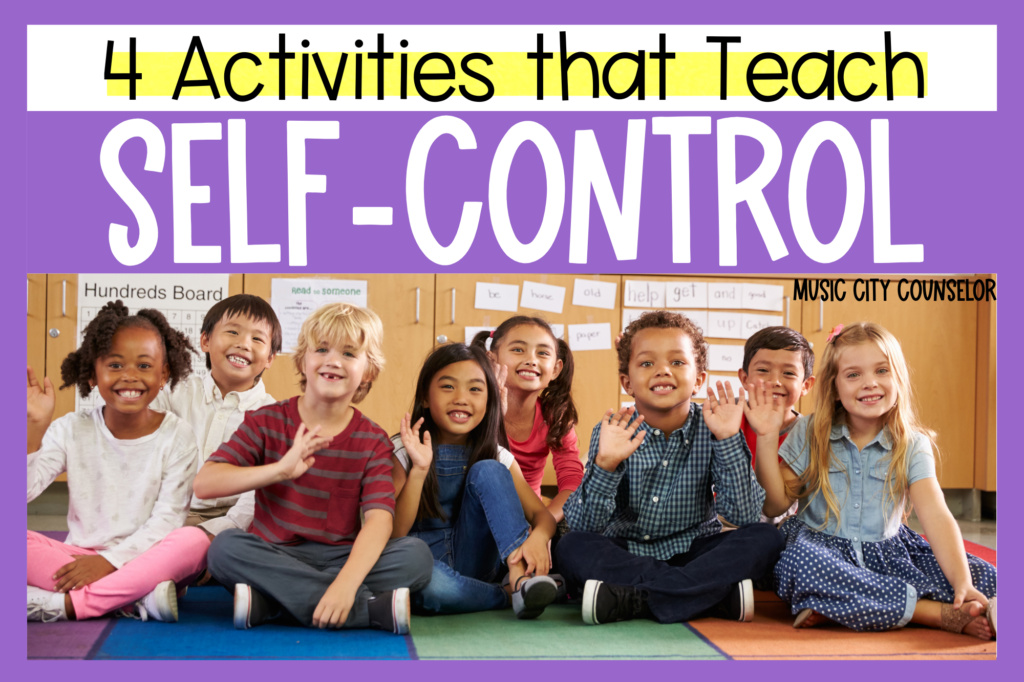
As a school counselor, one of our key roles is to equip students with social-emotional skills, and self-control is one of the most important! Self-control helps students navigate daily challenges like focusing in class, resolving conflicts on the playground, and managing big feelings.
Check out these 4 self-control activities you can use in counseling sessions to practically and enjoyably teach this SEL skill to your elementary students!
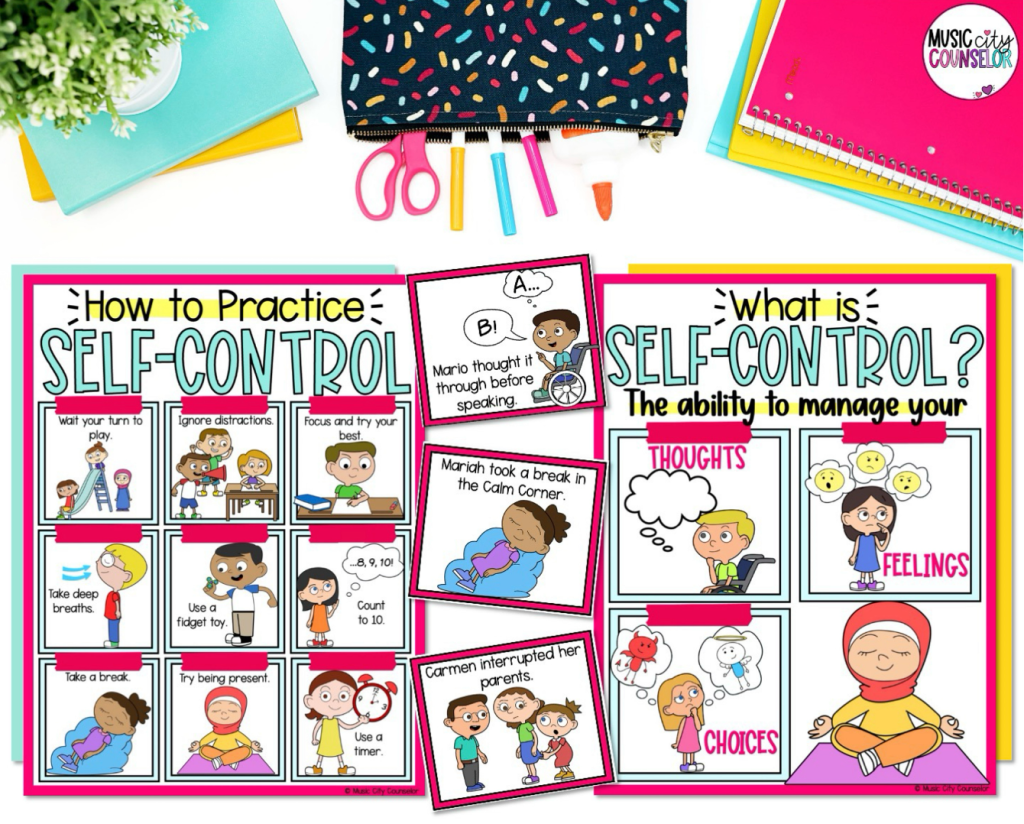
The kid-friendly definition of self-control that I use with my students is “the ability to manage your thoughts, feelings, and choices.”
Teaching self-control at an early age helps elementary students handle frustration, make thoughtful choices, maintain focus, and manage emotions and behaviors.
Self-control includes the following:
These skills are foundational for academic success and positive social interactions– and follow students beyond their school years into all of life!
Fun fact: Research by Duckworth and Seligman in 2005 found that self-discipline is a more significant indicator of academic performance than IQ!
Students need to practice self-control in every aspect of school life. Consider these examples as you teach this important skill to your students:
Self-Control in the Classroom
Self-Control During Recess
Self- Control in the Cafeteria
Incorporate exciting self-control activities into individual, small group, or whole group counseling sessions to help students learn and practice this skill!
Practice self-control by role-playing during individual or small group counseling sessions. Practicing these skills in a controlled, safe environment allows students to receive immediate feedback from you and others, develop important social skills, and boost self-confidence.
Materials Needed:
How To:
Example: Edwin has been looking forward to swinging all morning, but Suzy got to the swing first at recess. What should Edwin do?
Students will also practice empathy, perspective-taking, and problem-solving skills while participating in this activity!
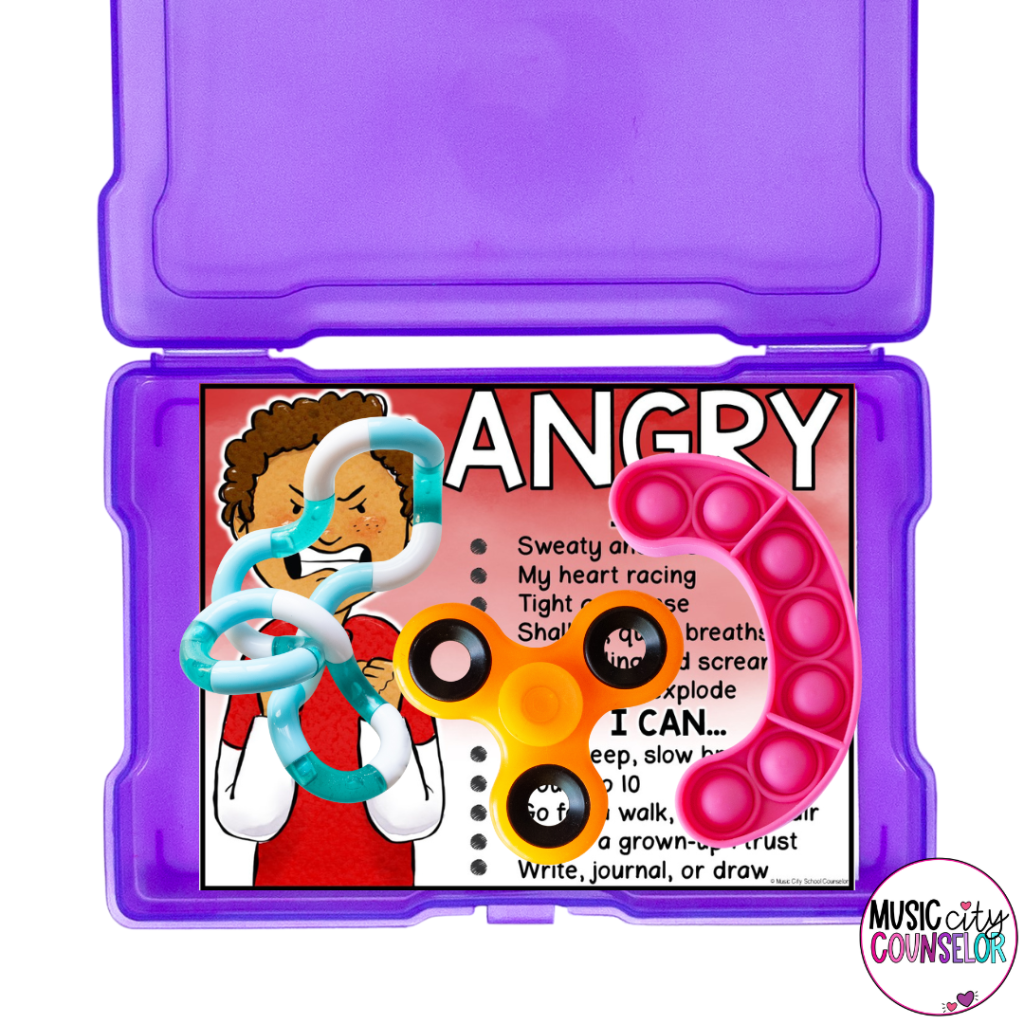
Assist students in building self-control toolboxes to help them be prepared for challenging situations they will face in school and life in general.
Materials Needed:
How to:
This activity also encourages students to be creative, self-reflect, and practice resourcefulness!
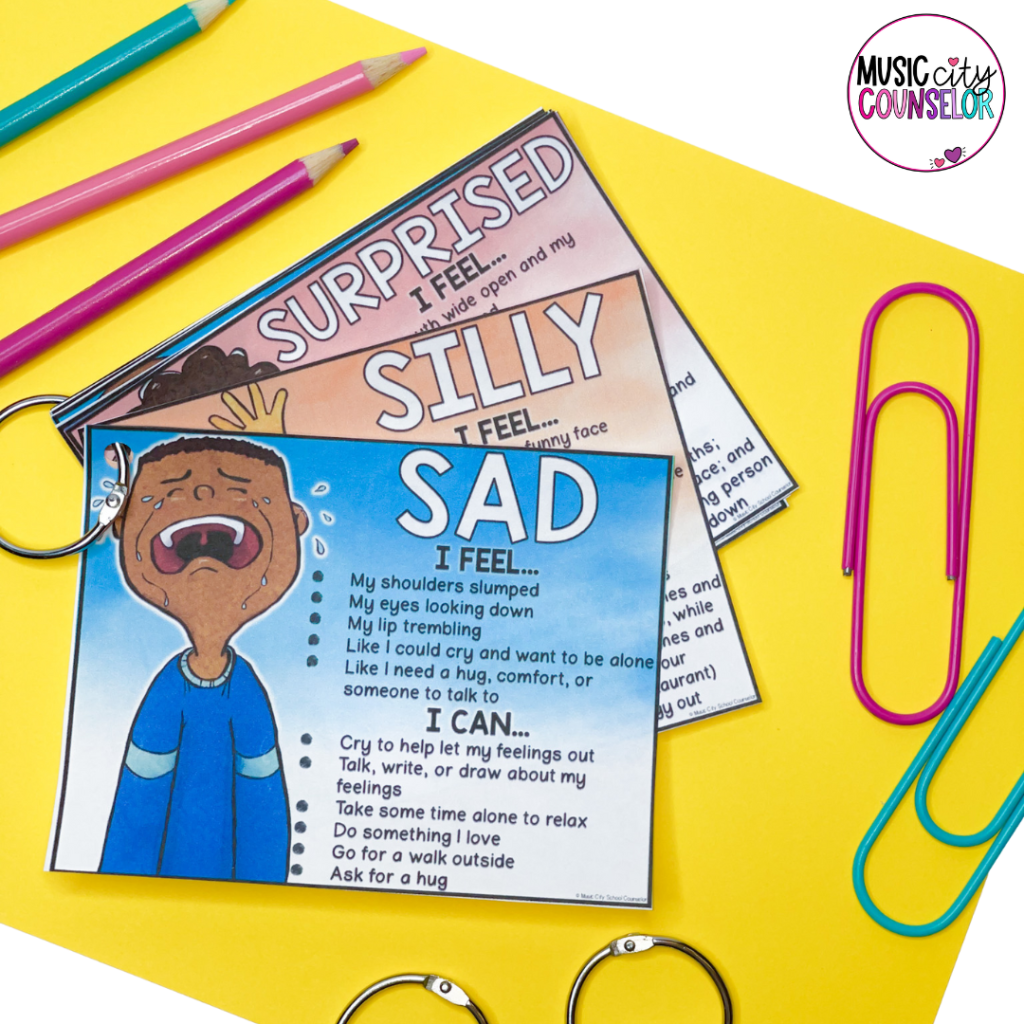
Students love practicing the difference between “In Control” and “Out-of-Control” choices with this interactive self-control sorting game!
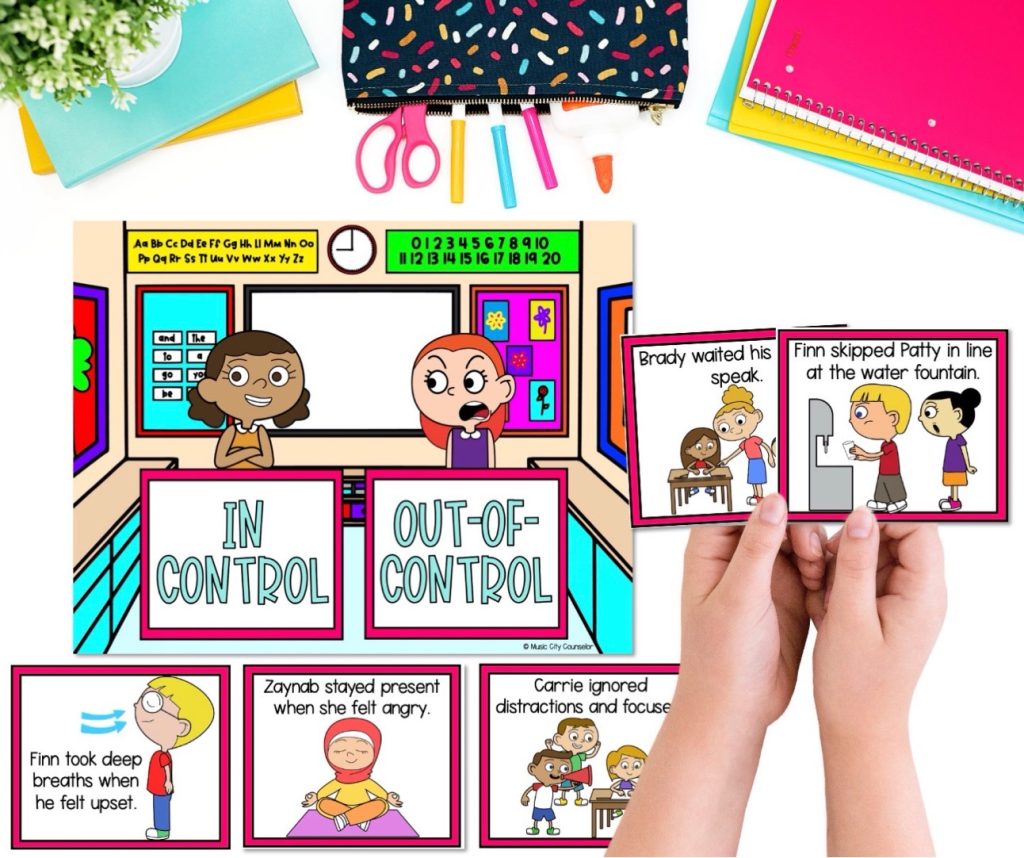
Materials Needed:
How To:
This activity can be played in a whole group lesson, with small groups, or with individual students. Students take turns choosing a scenario card, reading it aloud to their group, and deciding whether it represents an “In Control” or “Out-of-Control” behavior. Then, students place the card on that side of the mat (or, if using the digital version, drag the pink checkmark to the appropriate box).

With this ASCA-aligned resource, students also learn 18 important tips for self-control. You can utilize the included instructional posters, worksheets, and coloring pages to expand your self-control unit, too!
Next, get your students moving! Help them practice self-control while playing a super fun game of FREEZE!
Your students will work on paying careful attention and controlling their impulses as they participate in this classic self-control activity.
Materials Needed:
How To:
Open the floor for discussion after playing this game to encourage students to reflect on ways they successfully practiced self-control or ways they can improve their efforts.
Your students will want to play this game again and again!
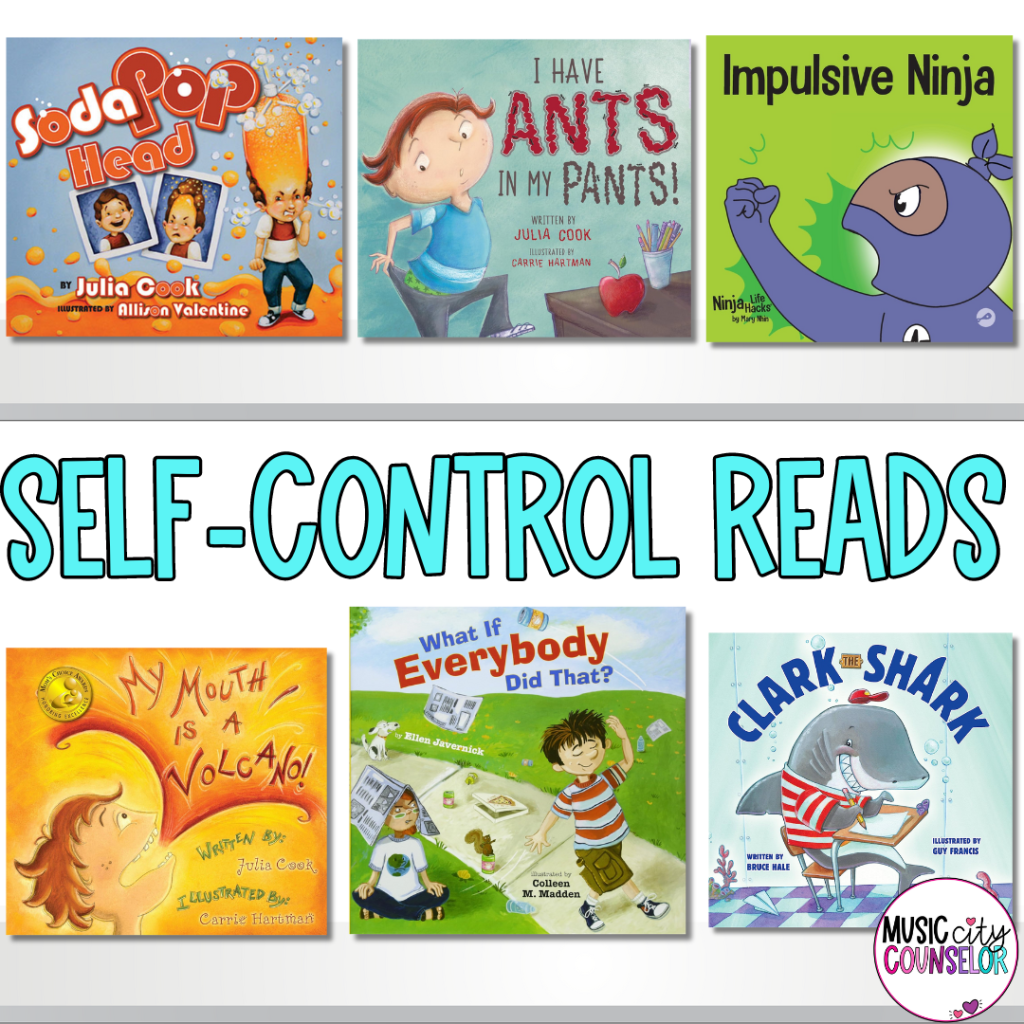
Don’t forget the benefits of incorporating storybooks when teaching students social-emotional learning skills. Relatable characters, illustrations, and scenarios help young students connect to otherwise difficult-to-understand topics.
These children’s books about self-control are a great choice to add to your self-control planning!
By incorporating self-control activities into your counseling sessions, you can effectively teach this important SEL skill to students. Be confident that you are helping them develop important social-emotional skills they need to succeed in school and life!

| Cookie | Duration | Description |
|---|---|---|
| cookielawinfo-checkbox-analytics | 11 months | This cookie is set by GDPR Cookie Consent plugin. The cookie is used to store the user consent for the cookies in the category "Analytics". |
| cookielawinfo-checkbox-functional | 11 months | The cookie is set by GDPR cookie consent to record the user consent for the cookies in the category "Functional". |
| cookielawinfo-checkbox-necessary | 11 months | This cookie is set by GDPR Cookie Consent plugin. The cookies is used to store the user consent for the cookies in the category "Necessary". |
| cookielawinfo-checkbox-others | 11 months | This cookie is set by GDPR Cookie Consent plugin. The cookie is used to store the user consent for the cookies in the category "Other. |
| cookielawinfo-checkbox-performance | 11 months | This cookie is set by GDPR Cookie Consent plugin. The cookie is used to store the user consent for the cookies in the category "Performance". |
| viewed_cookie_policy | 11 months | The cookie is set by the GDPR Cookie Consent plugin and is used to store whether or not user has consented to the use of cookies. It does not store any personal data. |